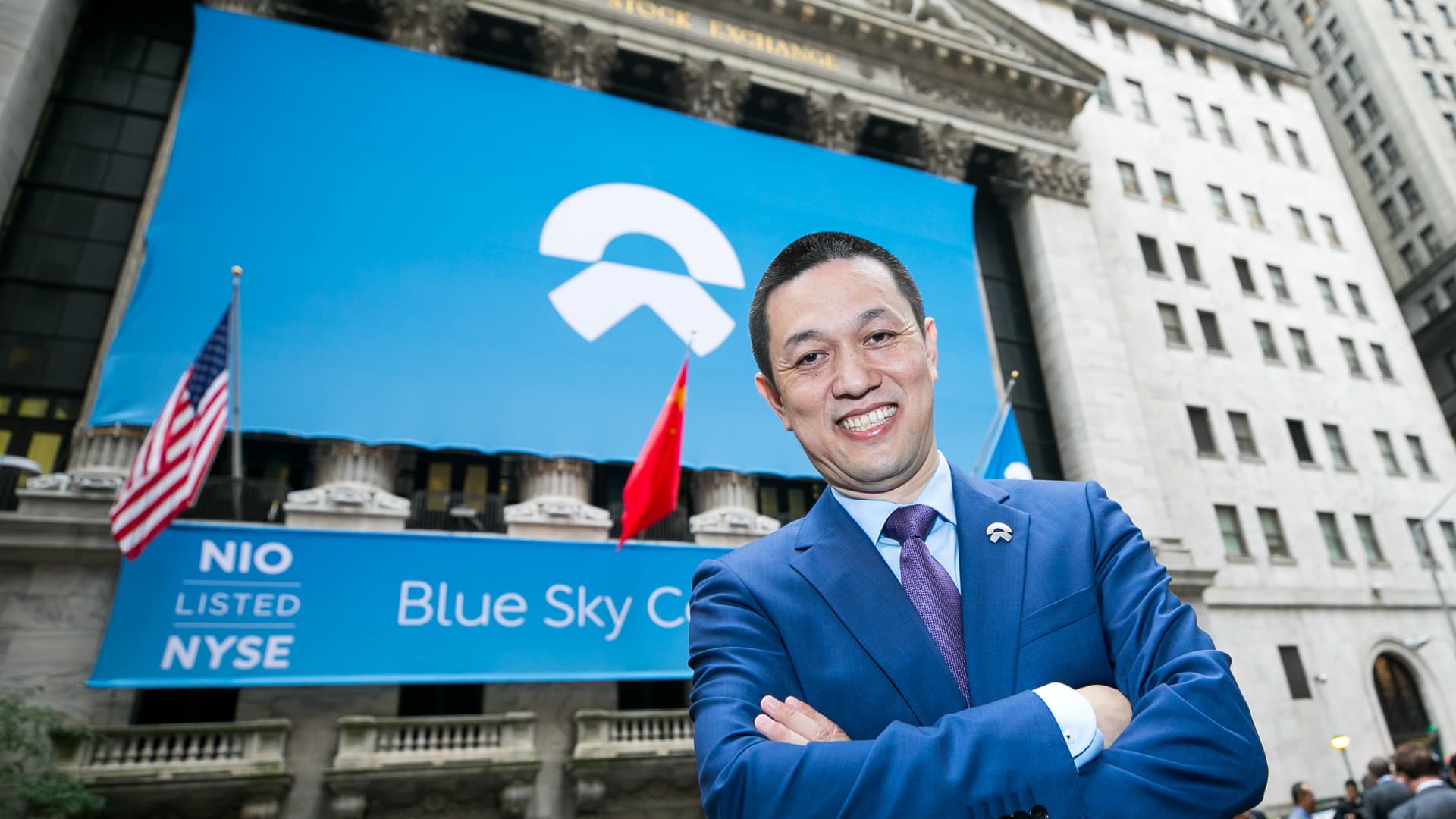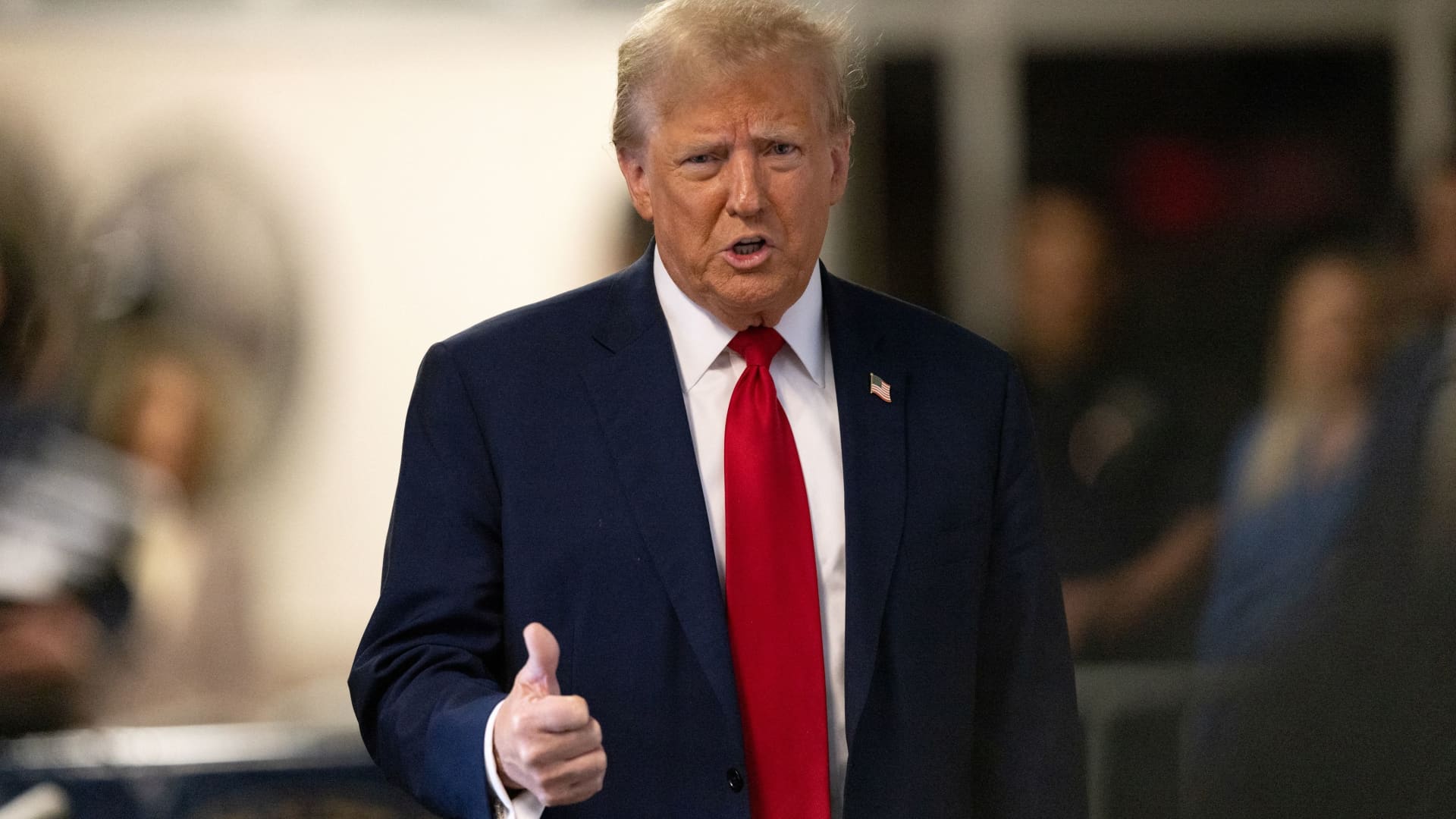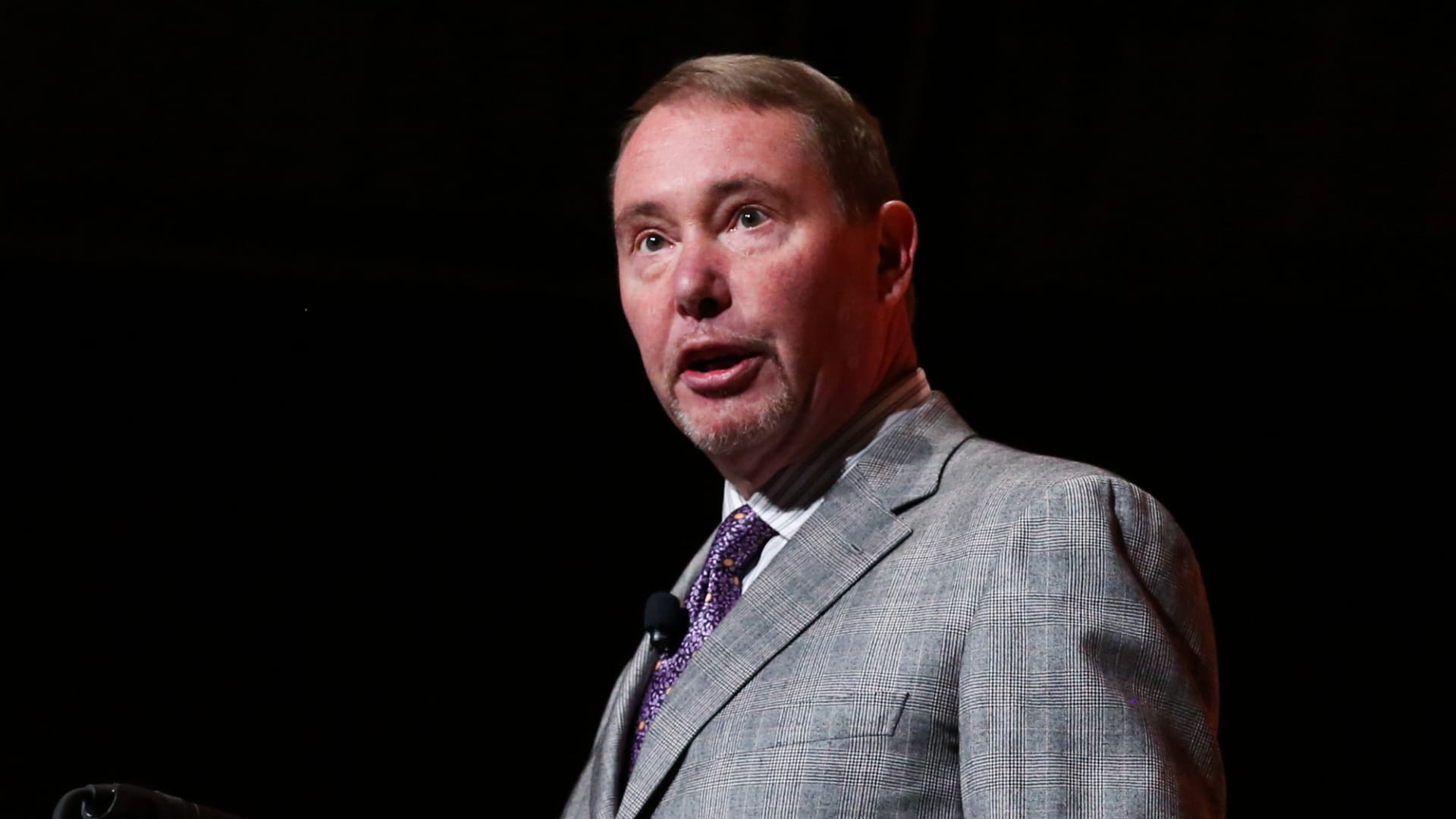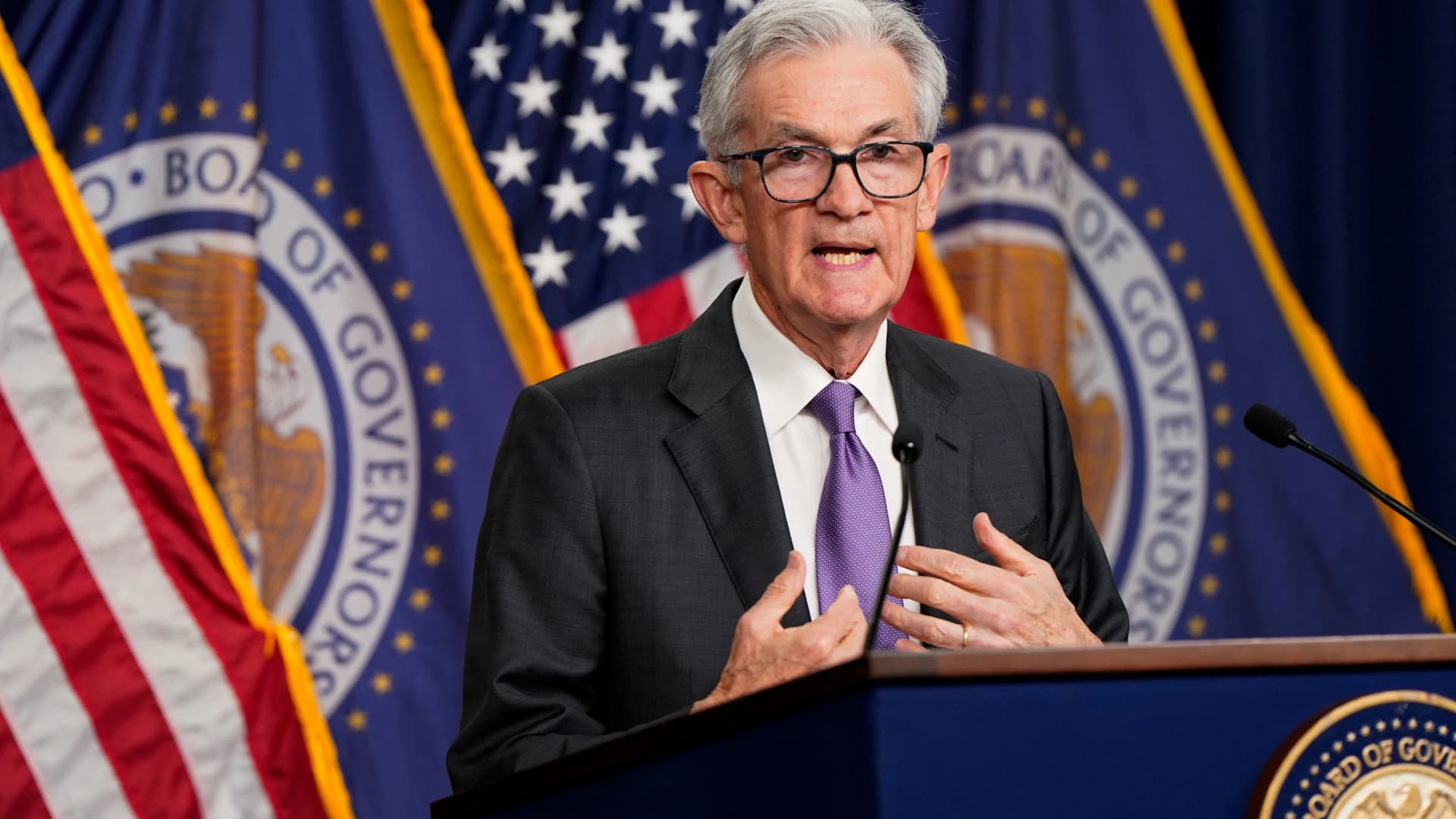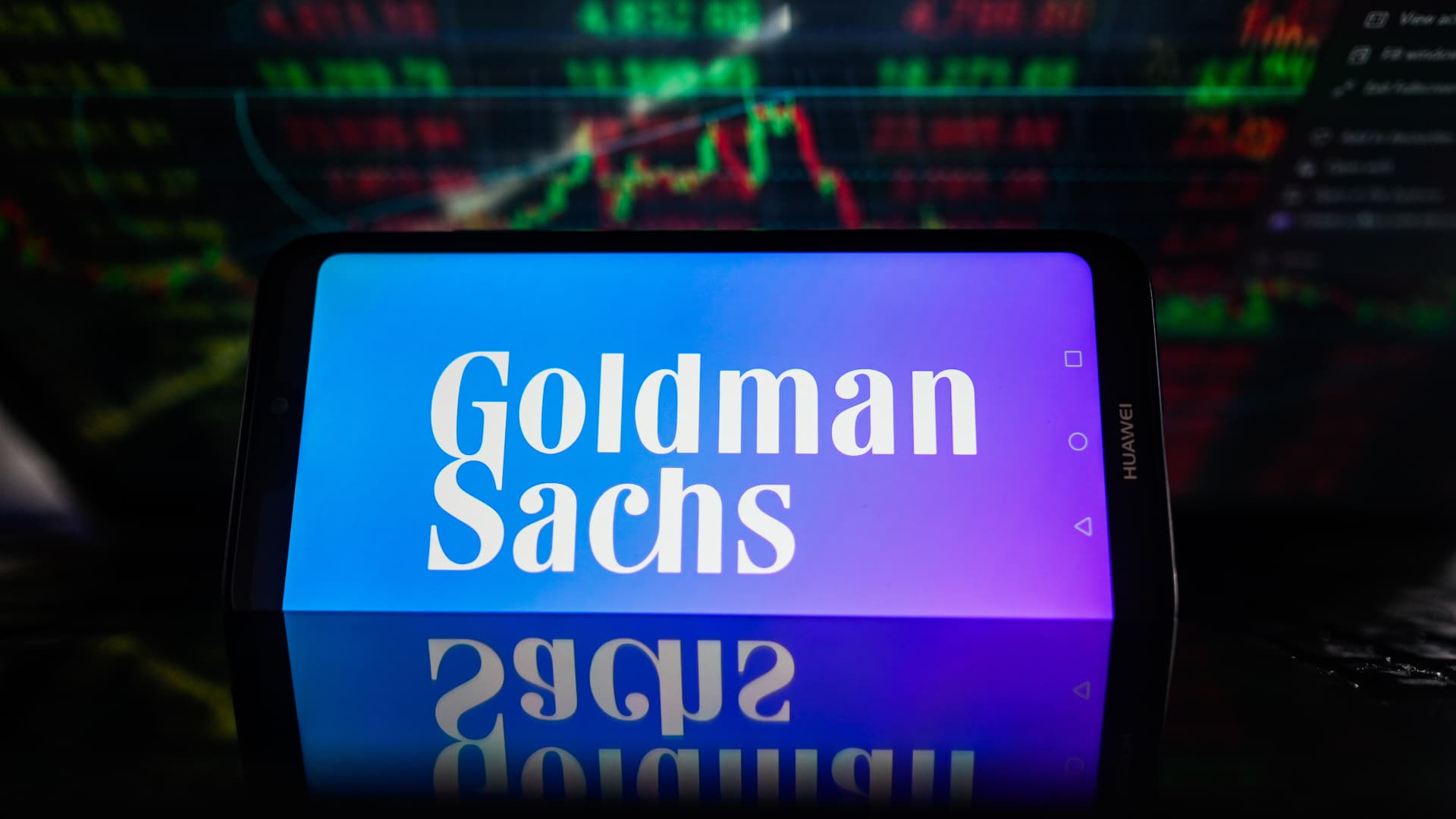China’s President Xi Jinping speaks at the “Senior Chinese Leader Event” hosted by the National Committee on US-China Relations and the US-China Business Council on the sidelines of the Asia-Pacific Economic Cooperation (APEC) Summit in San Francisco, California . USA, November 15, 2023.
Carlos Barria | Reuters
BEIJING – U.S. business leaders met with Chinese President Xi Jinping on Wednesday, the latest attempt by Beijing to boost foreign investment in China amid tensions with the United States
Black stone Founder Stephen Schwarzman, Qualcomm President and CEO Cristiano Amon, Bloomberg Chairman Mark Carney and FedEx According to state media, President Rajesh Subramaniam was among the participants.
FedEx confirmed the meeting. The other companies did not respond to CNBC’s request for comment.
Previous reports described the meetings as follow-up to Xi’s dinner with U.S. business leaders in San Francisco in November, following the Chinese president’s meeting with President Joe Biden.
The executives and other major international companies were in Beijing this week for the annual China Development Forum (CDF), which ran from Sunday to Monday.
Top executives of multinational companies typically attend the state-organized forum, which is considered the “first major international state-level conference” after China’s annual parliamentary sessions in early March.
This year’s forum coincided with other efforts to attract foreign companies. Chinese authorities held an “Invest in China Summit” and officially relaxed once-strict data export requirements.
The Cyberspace Administration of China late Friday officially released long-awaited new rules that remove government oversight of sharing information abroad if regulators have not classified it as “important data.” These rules came into effect immediately.
What we have is companies getting stuck in the middle because the US is more involved in the economy than I can remember.
Carlos Gutierrez
former US Secretary of Commerce
“This is a significant step forward in transparency and our member companies now have much more clarity about how they plan to comply with these rules,” Sean Stein, chairman of the American Chamber of Commerce in China, said in a statement.
“In particular, these changes strengthen the role of industry regulators in determining what data should be considered important in their sectors,” he said, “and also assume that data is not important unless it is explicitly stated as such declared.”
However, a combination of geopolitical tensions, regulatory uncertainty and slower economic growth have made things more difficult for foreign companies in China.
“We’re dealing with companies that are stuck in the middle because the U.S. is more involved in the economy than I can remember,” Carlos Gutierrez, former U.S. Commerce Secretary, said Wednesday on CNBC’s ” Squawk Box Asia”.
“We are in a time of confusion between different ideologies,” Gutierrez said. “We will make it. Nothing is permanent, and at some point the numbers will show that globalization is a better model than self-reliance or nationalism. But unfortunately we are in this moment and will remain in it for a while.”
Biden, who is running for re-election in November, has created incentives to promote industrial development in the United States. His administration has also used export controls to prevent U.S. companies from selling advanced semiconductor technology to China.
…foreign companies share the same lack of confidence and worries about an uncertain future that much of China’s domestic industry feels.
Scott Kennedy
Center for Strategic and International Studies
To help foreign companies better navigate the Chinese market, former SwissCham China managing director Peter Bachmann suggested creating a dedicated executive at a company’s global headquarters.
“We now have to deal with two different levels. One is the business level and one is the political level. Before, it was just the business level,” said Bachmann, a long-time Shanghai resident and board member of the China Center at the University of Applied Sciences Northwestern Switzerland (FHNW).
He said this speaks to a so-called “chief China officer,” whose job includes helping headquarters better understand China and bridging the gap between headquarters and the leadership team in China.
Looking for economic clarity
For companies considering investment plans in China, another factor to consider is the country’s short-term growth prospects.
“The US business delegation [at CDF] “The conference was significantly larger than last year, the conference organizers gave them a more visible platform and they took the opportunity to have their say,” said Scott Kennedy, senior adviser and board of trustees for Chinese business and economics at the Center for Strategic and Economics International studies in Washington, DC
“The Chinese party-state has tried to send a clear signal that foreign companies are welcome, but foreign companies share the same lack of confidence and worries about an uncertain future felt by much of China’s domestic industry,” Kennedy said.
The Chinese government announced at its parliamentary session this month that the country was targeting growth of around 5%.
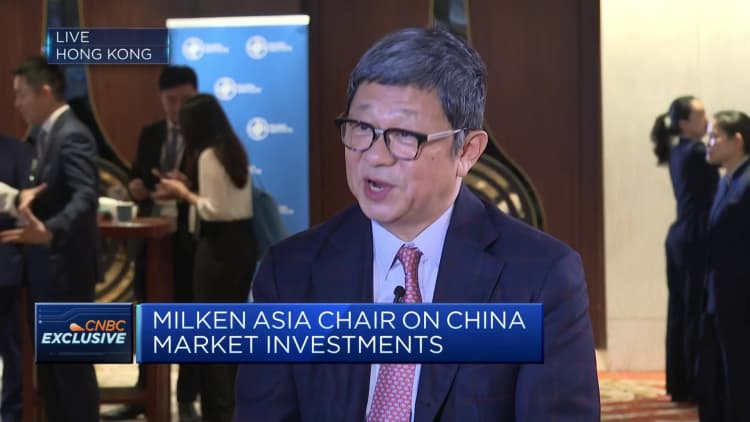
Several analysts consider such a target to be ambitious given the current scale of announced stimulus measures and the strain on the huge real estate sector. Senior government officials signaled during the parliamentary session that Beijing may increase its support, but did not elaborate.
This year’s China Development Form offered “no new insights into the challenges facing China and possible new policy remedies,” said Stephen S. Roach, a senior fellow at Yale Law School’s Paul Tsai China Center.
Instead, the forum focused more on what had already been shared at the parliamentary session earlier this month, said Roach, who said he has attended the CDF every year except the first one in 2000.
“It seemed to me more of a placeholder for the party’s upcoming Third Plenum, which could give a stronger indication of new reforms or policies,” Roach said.
China’s ruling Communist Party typically holds a “third plenum” every five years to discuss longer-term aspects of the economy. The meeting was highly anticipated as it was scheduled to take place at the end of last year.
Foreign Investment Outside the United States
Foreign direct investment in China fell to its lowest level in three years in 2023, according to official data. Since easing pandemic-era border controls early last year, China has redoubled its efforts to attract foreign capital.
The Ministry of Commerce and Beijing Municipality held the first “Invest in China Summit” on Tuesday, attended by about 140 business representatives.
“Investing in China means investing in the future,” China Vice President Han Zheng said in an opening speech, according to a CNBC translation of his Mandarin-language remarks. He highlighted China’s large market and industrial supply chain, noting how China has worked on issues such as data exports and equal treatment of foreign companies in the market.
While US and European companies face larger geopolitical considerations in their operations in China, Middle Eastern capital has been keeping an eye on the market.
“When it comes to the possibilities for Aramco and China to join forces, the bottom line is: There are no limits!” Amin H. Nasser, president and CEO of the Saudi energy giant, said in a speech on Tuesday at the Invest in China Summit.
He noted that Aramco and its chemical subsidiary SABIC signed deals for more than $20 billion in chemical investments in China last year. Nasser also said venture capital is a “strategic area for collaboration,” noting that Aramco more than doubled its funding for its VC arm to $7.5 billion in January.
Japanese companies are also looking for investment opportunities in China’s robotics, factory automation and automobile industries this year, Toyoki Oka, secretary general of the Japan-China Investment Promotion Agency, said on the sidelines of the summit. He said such investments would be for sales to China and eventually exports to Southeast Asia.
—CNBC’s Eunice Yoon contributed to this report.
Source link
2024-03-28 01:57:42
www.cnbc.com

